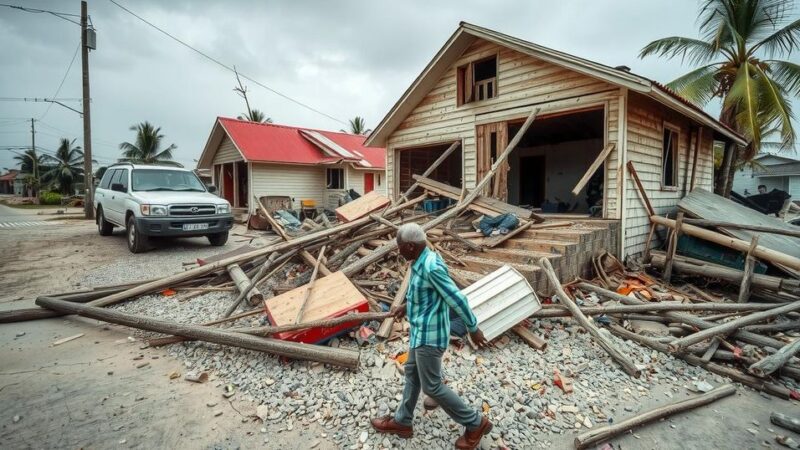2024 is on track to become the hottest year recorded, with global temperatures exceeding 1.5°C above pre-industrial levels. Extreme weather events highlight the urgency of climate action, yet global emissions are rising despite political promises. A recent $300 billion climate agreement is criticized as inadequate. Denial of climate change by political leaders further complicates efforts to address this critical issue.
In 2024, the world is poised to experience unprecedented heat, with scientists confirming that this year will be the hottest on record since monitoring began. Global temperatures are projected to exceed the alarming threshold of 1.5°C above pre-industrial levels, emphasizing the critical nature of the climate crisis. As extreme weather events ravage various regions, the link to human-induced climate change becomes increasingly evident, highlighting the immediate need for significant action.
The ramifications of global warming are manifesting through devastating extreme weather occurrences worldwide. Communities have suffered from severe droughts in regions such as Italy and South America, and catastrophic floods in areas like Nepal, Sudan, and Europe have led to widespread evacuations. Additionally, heatwaves have been reported in countries like Mexico, Saudi Arabia, and Mali, resulting in significant mortality rates. Scientific consensus indicates that these grave occurrences are directly correlated with anthropogenic climate change.
The primary driver of global warming is the increase in carbon dioxide emissions due to the combustion of fossil fuels. These emissions create a greenhouse effect, subsequently raising global temperatures at a concerning pace. Effective mitigation requires achieving net-zero emissions, a goal that numerous nations are aiming for; however, current trends indicate a rise in global CO2 emissions to record levels in 2024. This situation underlines the discrepancy between political commitments and the actual measures necessary to address climate change effectively.
In an attempt to tackle the climate crisis, a recent $300 billion agreement highlighted at the United Nations climate talks is viewed as insufficient, especially by developing nations that are facing heightened expenses related to climate disasters. Furthermore, the increasing prevalence of climate change denial among political figures complicates the fight against this urgent issue. The actions of key political leaders, such as US President-elect Donald Trump, who has previously diminished the severity of climate challenges and rolled back crucial environmental policies, pose significant threats to progress in climate action.
The urgency for decisive action to combat climate change has never been more critical. The time to implement meaningful changes is swiftly diminishing, and immediate measures are essential to prevent exacerbating an already dire situation.
The article addresses the alarming effects of global warming as 2024 is predicted to be the hottest year recorded, surpassing a crucial temperature threshold defined by climate scientists. It discusses extreme weather events and their consequences on communities worldwide, emphasizing the role of human activity in exacerbating these issues through increased carbon emissions. Additionally, it explores the inadequacies of current global climate agreements and highlights political factors hampering effective climate action.
In conclusion, 2024 stands as a pivotal year in the discourse on climate change, as escalating temperatures and extreme weather events underscore the reality of a climate emergency. The urgent need for cohesive global action is evident, yet current efforts remain insufficient. As political dynamics pose challenges to climate initiatives, there is a pressing requirement for nations to act decisively to mitigate the effects of climate change and safeguard the future of our planet.
Original Source: www.dailypioneer.com







